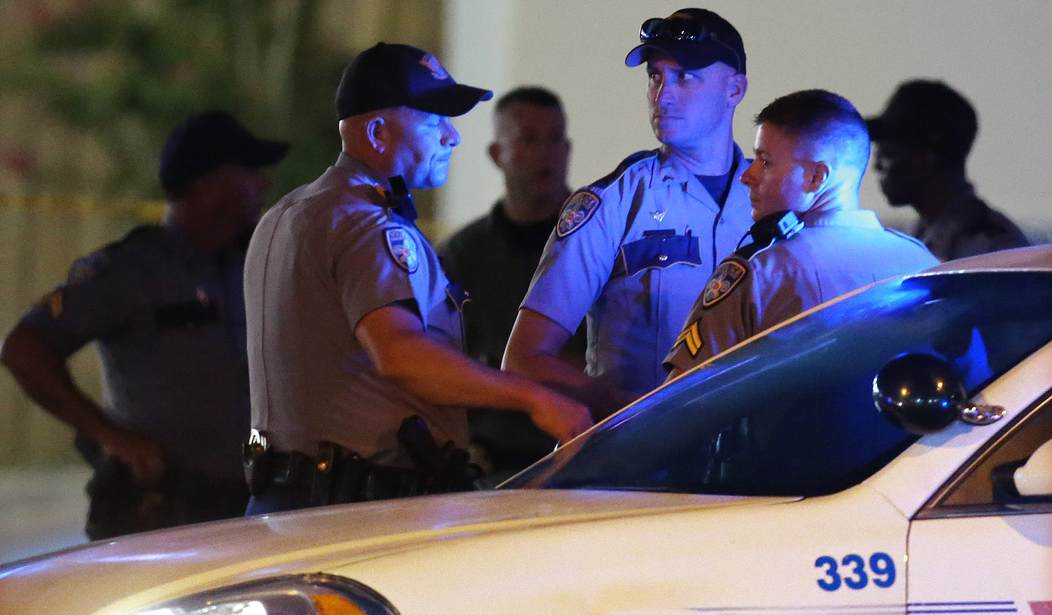The Massachusetts Supreme Judicial Court has ruled that a black man fleeing police may have a legitimate reason for doing so and should not be deemed “suspicious.”
The ruling overturned the conviction of a black man, Jimmy Warren, on illegal handgun charges. Warren and a companion fled as he was approached by officers investigating a break-in who believed Warren matched a vague description of one of the perpetrators.
But the judges, citing an ACLU study that blacks were disproportionately targeted for “Field Interrogation and Observations” (FIO), said that the fact that Warren and his companion fled the police does not necessarily constitute a “consciousness of guilt.” The men “might just as easily be motivated by the desire to avoid the recurring indignity of being racially profiled as by the desire to hide criminal activity.”
WBUR:
In its ruling, the court made two major findings: The justices said police didn’t have the right to stop Warren in the first place, and the fact that he ran away shouldn’t be used against him.
On the first point, the court said the description of the break-in suspects’ clothing was “vague,” making it impossible for police to “reasonably and rationally” target Warren or any other black man wearing dark clothing as a suspect. The court said the “ubiquitous” clothing description and the officer’s “hunch” wasn’t enough to justify the stop.
“Lacking any information about facial features, hairstyles, skin tone, height, weight, or other physical characteristics, the victim’s description ‘contribute[d] nothing to the officers’ ability to distinguish the defendant from any other black male’ wearing dark clothes and a ‘hoodie’ in Roxbury.”
On the second point, the court noted that state law gives individuals the right to not speak to police and even walk away if they aren’t charged with anything. The court said when an individual does flee, the action doesn’t necessarily mean the person is guilty. And when it comes to black men, the BPD and ACLU reports “documenting a pattern of racial profiling of black males in the city of Boston” must be taken into consideration, the court said.
“We do not eliminate flight as a factor in the reasonable suspicion analysis whenever a black male is the subject of an investigatory stop. However, in such circumstances, flight is not necessarily probative of a suspect’s state of mind or consciousness of guilt. Rather, the finding that black males in Boston are disproportionately and repeatedly targeted for FIO [Field Interrogation and Observation] encounters suggests a reason for flight totally unrelated to consciousness of guilt. Such an individual, when approached by the police, might just as easily be motivated by the desire to avoid the recurring indignity of being racially profiled as by the desire to hide criminal activity. Given this reality for black males in the city of Boston, a judge should, in appropriate cases, consider the report’s findings in weighing flight as a factor in the reasonable suspicion calculus.”
This seems to me to be extremely burdensome for police. Now, when a black suspect flees an order to stop, the cops will have a split second to decide whether it’s because of a guilty conscience or hurt feelings about being profiled. If the police take any time at all to consider the question, the potential suspects are gone.
You would think most descriptions of suspects given to police are about as vague as the descriptions of the perpetrators of this break-in.
Police had been given a description of the suspects as three black men — one wearing a “red hoodie,” one wearing a “black hoodie” and the other wearing “dark clothing.”
Are criminals really interested in avoiding “the recurring indignity of being racially profiled,” or are they more interested in getting away from the police because they’ve committed a crime and don’t want to get caught? The Massachusetts Supreme Judicial Court thinks criminals can be sensitive too. Thus the court has no problems with hamstringing police when they’re trying to keep high-crime neighborhoods a little safer.










Join the conversation as a VIP Member